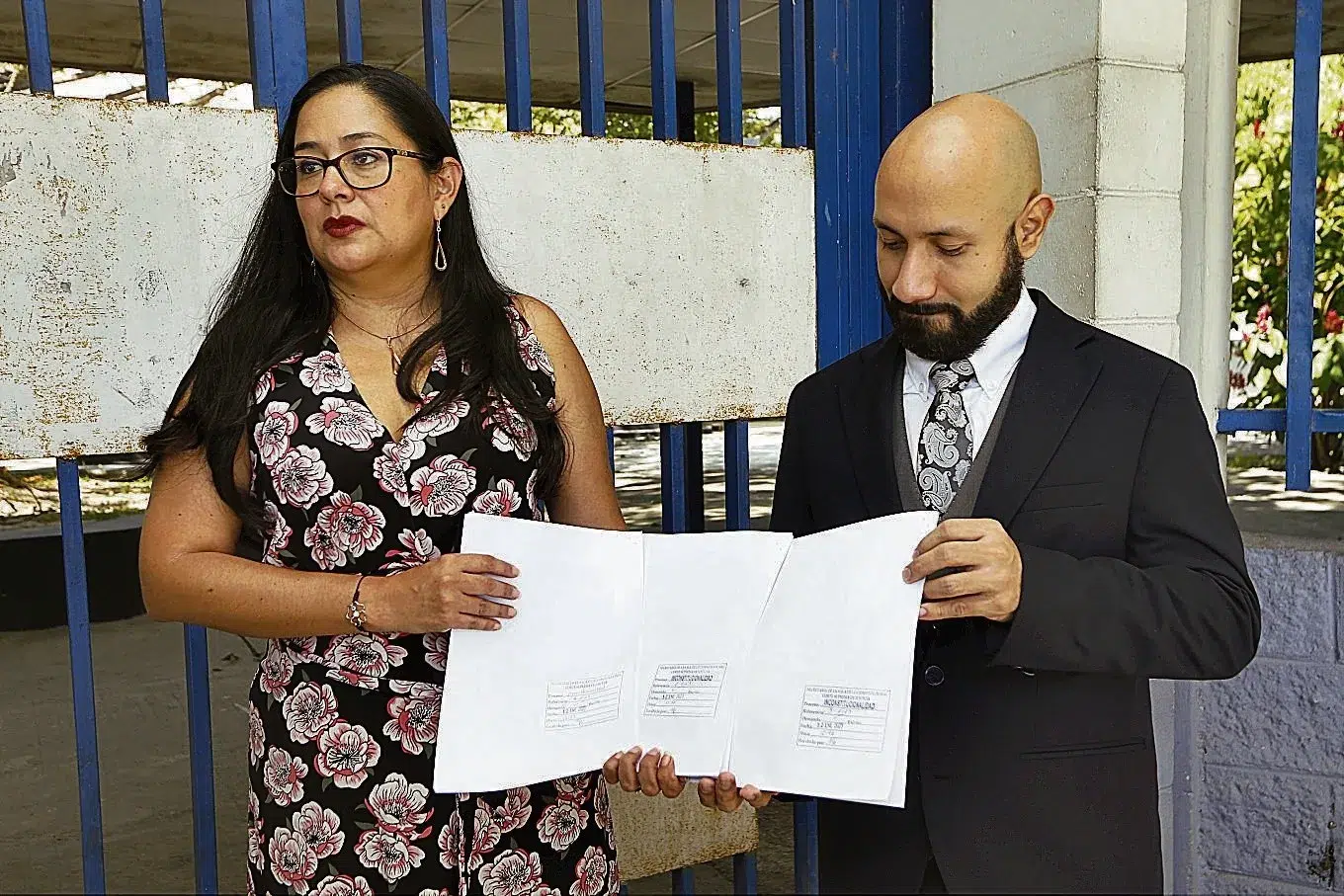Three lawsuits of unconstitutionality were presented yesterday by Cristosal before the Constitutional Chamber of the Supreme Court of Justice (CSJ) against three laws approved by the current Legislative Assembly that, according to the organization, favor corruption.
Lawyers of the organization requested to declare unconstitutional the following laws: the Law of Special Regime for the Simplification of Procedures and Administrative Acts related to the Pacific Train; Law for the Construction, Administration, Operation, and Maintenance of the Pacific International Airport and the Special Law for the Construction of Penitentiary Centers.
Cristosal’s anti-corruption and justice chief, Ruth Eleonora López, assured that these laws eliminate the constitutional requirement that guarantees competition, free concurrence, and transparency to award works. She also said that these regulations violate international treaties and give the Executive functions that belong to the Legislative Body.
“There are three reasons for unconstitutionality: in the first place, the Legislative Assembly gives powers to the Executive Branch to establish the contracting conditions for these works, and this violates the Constitution,” said López.
He added that the other unconstitutionality concerns the fact that there is a violation of the contracting system foreseen in the Constitution, which is public bidding.
“One of the problems offered by these recently approved laws is that since there are no transparent processes regulated by law, this comes to complexity with the lack of transparency of public management. That is to say, in addition to the fact that the law gives powers to the Executive, the same Executive puts in reserve all the processes, which makes the citizen audit difficult”, questioned Cristosal’s lawyer.
The organization’s specialists say that they have counted about ten laws approved by the Legislative Assembly that repeat the same pattern concerning the public procurement system.
“We have counted more than ten laws that are promoting a reform of the public procurement system; we have already presented other unconstitutionality previously, one on the Special Procurement Regime for the Exception Regime and the other also for the regime that was established for the Directorate of Municipal Works,” indicated Lopez before the media.
The expert also said that the approved regulations violate the United Nations Convention against Corruption and the Inter-American Commission against Corruption.
Presentan demandas por leyes que favorecerían la corrupción
Tres demandas de inconstitucionalidad fueron presentadas ayer por Cristosal ante la Sala de lo Constitucional de la Corte Suprema de Justicia (CSJ) contra tres leyes aprobadas por la actual Asamblea Legislativa y que, según la organización, favorecen la corrupción.
Abogados de la organización pidieron declarar inconstitucionales las siguientes leyes: la Ley de Régimen Especial para la Simplificación de Trámites y Actos Administrativos Relativos al Tren del Pacífico; Ley para la Construcción, Administración, Operación y Mantenimiento del Aeropuerto Internacional del Pacífico y la Ley Especial para la Construcción de Centros Penales.
La jefa anticorrupción y justicia de Cristosal, Ruth Eleonora López, aseguró que en estas leyes se elimina el requerimiento constitucional que garantiza la competencia, libre concurrencia y transparencia para adjudicar obras. Dijo además que estas normativas violan tratados internacionales y dan al Ejecutivo funciones que son del Órgano Legislativo.
“Son tres motivos de inconstitucionalidad: en primer lugar la Asamblea Legislativa le da facultades al Órgano Ejecutivo para que establezca las condiciones de contratación para estas obras y esto vulnera la Constitución”, dijo López.
Agregó que la otra inconstitucionalidad es con respecto a que existe una vulneración del sistema de contratación previsto en la Constitución, que es la licitación pública.
“Uno de los problemas que ofrecen estas leyes recientemente aprobadas es que como no hay procesos transparentes y regulados por ley esto viene a complejizarse con la falta de transparencia de la gestión pública. Es decir, además de que la ley le da facultades al Ejecutivo, el mismo Ejecutivo pone en reserva todos los procesos y eso dificulta la auditoría ciudadana”, cuestionó la abogada de Cristosal.
Los especialistas de la organización dicen que han contabilizado unas diez leyes aprobadas por la Asamblea Legislativa en las que repiten el mismo patrón con respecto al sistema de compras públicas.
“Hemos contabilizado más de 10 leyes que están promoviendo una reforma del sistema de compras públicas, ya hemos presentado otras inconstitucionalidades anteriormente, una sobre el Régimen Especial de Compra para el Régimen de Excepción y el otro también por el régimen que se estableció para la Dirección de Obras Municipales”, indicó López ante los medios de comunicación.
La experta dijo también que las normativas aprobadas vulneran la Convención contra la corrupción de Naciones Unidas y la Comisión Interamericana contra la Corrupción.

